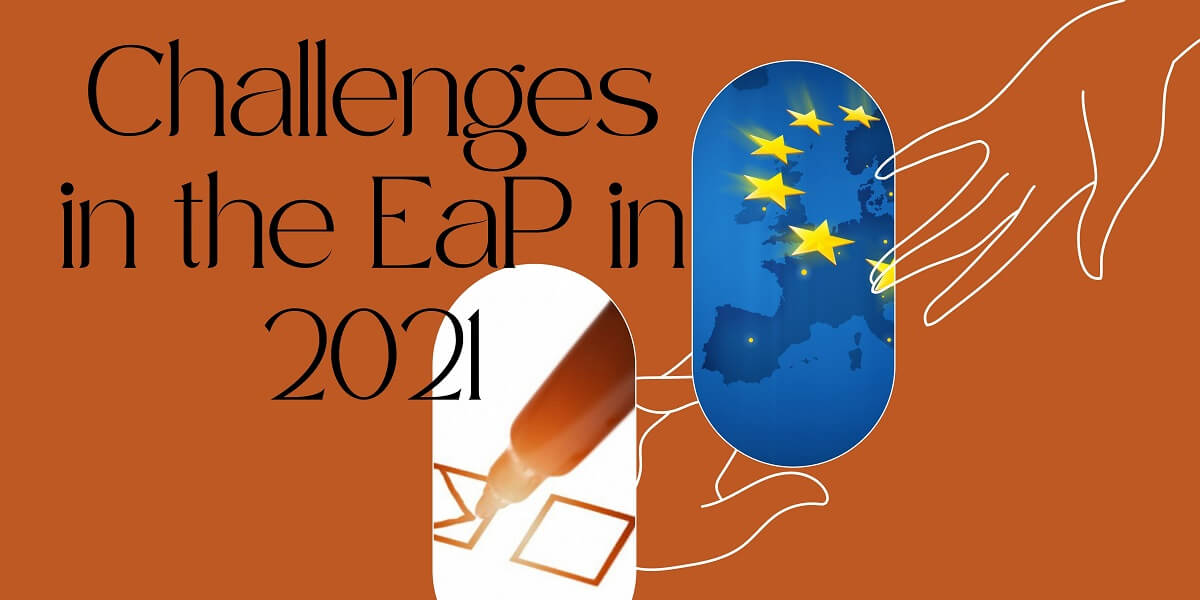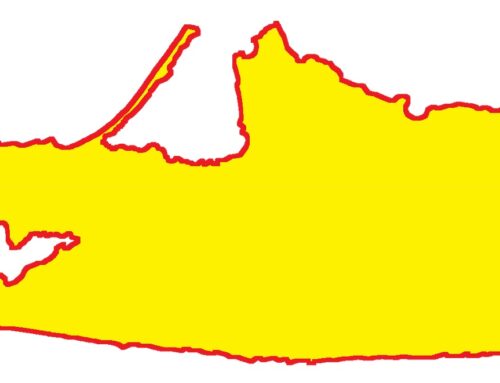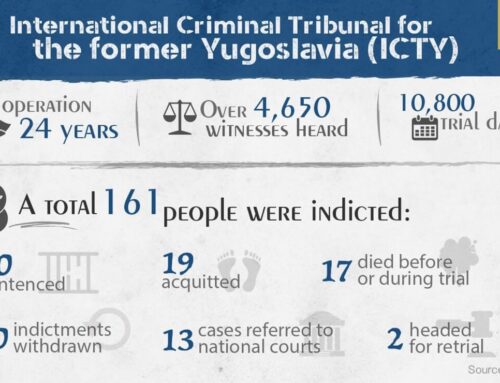Dionis Cenuşa
“The processes that took place in 2021 have confirmed that the countries of the region, even after 30 years of independence, do not have sufficient capacity to overcome security crises on their own. That is why the EU will be forced to continue to assume the role of provider of security and stability for the eastern neighborhood...“
During 2021, developments within the Eastern Partnership (EaP) have shown that democratic prospects are still something available in the region. The reformist political forces continued to enjoy the confidence of the people to the extent necessary to take over the government. But progress has not been uniform across the region. In some cases, there have been negative trends to increase authoritarian repression or reduce the appetite for democratic reforms. Although the European Union (EU) has increased its presence in the region, its effectiveness is limited by the still poor functionality of its eastern neighbors and the impact of destructive or hostile influence from Russia. The political change in Germany has emancipated a post-merkelist government more openly committed to the processes of European integration in the EaP.
The optimistic trends in the EaP were due to the democratization and political stabilization processes in Moldova and Armenia as a result of early elections (NewEasternEurope, July 2021). An additional advantage for Yerevan was the entry into force of the Comprehensive and Enhanced Partnership Agreement in March 2021. The situation in Ukraine has been rather fluid due to uncertainties about justice reform, which cannot move forward due to a lack of political will and opposition to the “old system” (IPN, March 2021). In addition to internal pressure on reforms, threats of repeated Russian military aggression, to the scale unseen before, have also intensified. At the same time, Georgia has entered a gray zone of stagnating democracy after abandoning the judicial reforms agreed by the EU and allowing attacks against civic activists, journalists and the opposition (IPN, September 2021). The most serious setbacks occurred in Belarus, where repression of critics of the regime intensified, as did Western sanctions against Alexander Lukashenko’s regime. At the same time, the lack of effective international mediation in the process of delimiting the Armenian-Azerbaijani borders, following the military conflagration and the de-occupation of most of the Azerbaijani territories in 2020, delayed the process of pacification and regeneration of the traumatized dialogue between two neighboring nations.
Top 5 advances:
1. EU investments in resilience and democratic reforms in the Eastern Partnership. The main advance of the region is the commitment of Brussels to provide financial support for the transformation of the digital, ecological and transport interconnection both within the region and with the EU countries. Thus, the European budget for initiatives dedicated to the six EaP states comprises around € 20 billion in public and private investment, including grants (EU, July 2021). Specific actions include modernization of physical infrastructure, rationalizing energy consumption, improving Internet access, revitalizing rural areas, greening cities, and post-pandemic support for SMEs. Never before have European decision-makers been so specific and generous in their financial offer for modernization and intra-regional interconnection. However, it is true that the size of European assistance, in particular the non-reimbursable aid component, largely depends on the depth of relations with the EU. However, even if it does not have an Association Agreement with the EU, which involves political association and economic integration, Armenia will benefit from around € 500,000 more in European grants and investments than Georgia (€ 1.6 billion versus € 1.1 billion). Supporting sectoral resilience and rule of law reforms in the region formed the basis for the Joint Declaration of the 6th EaA Summit, which was also endorsed by authoritarian regimes such as Ilham Alyiev’s. Despite the positives, regional authoritarian leaders sympathized with each other. Thus, Azerbaijan disassociated itself from the critical aspects of the Joint Declaration of the Eastern Partnership on the political situation in Belarus, for which Lukashenko later thanked it.
2. The pro-EU zeal of the new German government in the eastern neighborhood. Under the agreement of the “traffic light” governing coalition, Germany will actively cooperate with the EU to promote European integration in the Eastern Partnership. Georgia, Moldova and Ukraine are expressly mentioned in the governing agreement. At the same time, the risks posed by the Russian factor are addressed more directly and critically, at least compared to the deal during the last Angela Merkel government (IPN, December 2021). In light of the military mobilization on Ukraine’s eastern border in late 2021, Russia’s Nord Stream 2 pipeline has raised the critical voice of the new government in Berlin. Foreign Minister Annalena Baerbock hinted that any kind of Russian military aggression against Ukraine could lead to the suspension of the pipeline certification process. Therefore, political change in Germany could facilitate a bolder and harsher policy on Russia’s actions in the Eastern Neighborhood, respectively.
3. Reinforced critical speech against the actions of Russia in the neighboring countries to the east. The EU has strongly condemned the concentration of Russian military potential on the border with Ukraine. In a joint statement with Group 7, the EU warned the Russian side that it would be severely punished for any (new) aggression against the Ukrainian state, given the imposition of a severe sanctions package. At the same time, European decision-makers used very straightforward statements about the use of energy as a geopolitical tool against Moldova. The latter was left without a gas supply contract with Russia, which withdrew its previous political support for the pro-Russian forces in power. In the absence of a renewed contract, the price of gas in September-October practically tripled, until the Moldovan authorities managed to negotiate a new contract (5 years) at the end of October 2021. Based on the negative experience of Moldova, the EU and the Member States were able to learn concrete lessons on the risks arising from gas contracts with Russia, but also on the importance of diversifying energy supply sources (IPN, November 2021).
4. The push for reform in Moldova. The early parliamentary elections in July 2021 resulted in the victory of the Action and Solidarity Party (PAS), which won a comfortable majority in Parliament (63 seats out of 101). Due to this political success, the government established in power is monochromatic. On the one hand, this has ensured perfect cohesion, which is very useful for reforms. However, on the other hand, the monopoly of political power has unbalanced the “checks and balances” mechanism (already damaged during the previous governments), and the appointments of various PAS sympathizers to state institutions raise serious doubts about the risk of re-politicization of state institutions (Ombudsman, Audiovisual Council, etc.). However, the reform agenda promised by the new government in Chisinau has had a positive effect on the image of the country in the EU. Due to this, there is a strong intention of Brussels to provide financial assistance to Moldova (600 million euros by 2024), despite the fact that the majority of the PAS, the government and President Maia Sandu have admitted various deviations in the decision-making process. In the first 5 months of their mandate, they did not comply with transparency procedures (Law of the Prosecutor’s Office) or openly neglected the concerns of civil society (Audiovisual Code). Finally, unity at the level of the EU institutions and the Member States became visible in the context of the non-reimbursable budget support (€ 60 million), signed during the Eastern Partnership summit to manage the socio-economic effects of rising prices for Russian gas. This was possible because the EU accelerated the internal political-bureaucratic procedures. Thus, the money could be disbursed by the end of 2021, avoiding potential complications related to internal EU budget planning in 2022.
5. Support for the Belarusian democratic movement in exile. Representatives of the Belarusian opposition, civil society and the media received constant political recognition from the European institutions throughout the year. The leader of the democratic movement Svetlana Tikhanovskaya has met with national leaders and the main decision-makers of the EU. She has reinforced her external legitimacy to such an extent that she has even been able to criticize Angela Merkel herself for her dialogue with Lukashenko on managing the migration crisis (DW, November 2021). Ahead of the EaP summit, the EU announced a € 30 million support program (RadioFreeEurope, December 2021) for Belarusian civil society, independent media and businessmen seeking refuge in the West. Funding civil society within Belarus has always been a challenge for foreign donors. However, there is a period in which, while access to external financing will be considerably disinhibited, civil society activities on the ground will be subject to further criminalization and persecution. The difficult task of the Belarusian democracy movement is to maintain a high level of interest in Belarus among Western decision-makers, whose attention may loosen due to new, more serious and more urgent crises, highly likely in 2022.
Top 5 challenges:
1. Reduced vaccination rate in the Eastern Partnership. The EU has facilitated access to vaccines through funding via the international platform COVAX, as well as through individual donations. For example, in the case of Moldova, EU countries (Romania and others) have donated more than 200,000 doses. It is estimated that about 1/3 of the vaccines administered in EaP countries (except Belarus) come from the EU, in one form or another. However, the level of vaccination did not exceed the 50% threshold. As of December 2021, around 29% of the region’s population was fully vaccinated. At the end of the year, the highest vaccination rate was recorded in Azerbaijan (46.9%) and Moldova (37.4%), followed by Ukraine (30%), Georgia (29.8%) and Belarus (25, 6%) and the lowest in Armenia (12.6%). The EU calls for the vaccination process to be accelerated to reach a level of 70% by mid-2022. This ambitious (and optimistic) goal will be achieved through a new financing mechanism (€ 35 million), administered by the Polish Development Bank (BGK), which will compensate for the sale of vaccines from the Member States to EaP states (therefore – resale mechanism, agreed in 2021).
2. The destabilization of the region under the impact of the Russian factor. The situation in the EaP could have been less turbulent in 2021 if it were not for the actions of the Russian side. These manifested themselves in various ways – from disinformation about vaccination, which led to the strengthening of the positions of the anti-vax movement (Ukraine, Moldova), to tensions on the Russian-Ukrainian border and inside Ukraine (occupied regions of Luhansk, Donbas and Crimea) and the occupied territories of Georgia (especially in South Ossetia). In Moldova, in the first half of the year, vaccine diplomacy was used (IPN, April 2021), and in September-October – there were pressures related to the contracting of natural gas supplies which, like other vulnerabilities in the energy sector, were addressed late by the PAS government. After the mobilization of military forces on the border with Ukraine closer to the end of 2021, Russia’s continued support of Alexander Lukashenko was probably the second source of destabilization in the region. This encouraged the Minsk regime to resort to actions threatening the borders of the EU (Poland, Lithuania, Latvia) by using illegal migrants mainly transported from the Middle East.
3. Instrumentalization of illegal immigration on the eastern borders of the EU. The Belarusian authorities have simplified the procedures for the issuance of tourist visas in some of the main countries of origin of illegal immigrants who choose Europe as their destination (in particular Iraq). In this way, Lukashenko would have tried to use illegal immigration as a measure to obtain geopolitical benefits from the EU, even testing the solidarity of the EU with Poland. The ultimate goal of the Minsk regime was international recognition by resuming official contacts to manage the migration crisis. But the only thing Minsk excelled at was using the humanitarian crisis on the Polish-Belarusian border to discredit the EU. Although the other illegal migration routes in the EU are clearly superior in terms of the size of the human trafficking than the eastern one, through Belarus (IPN, November 2021). However, the alert triggered by the latter was special because it had state actors behind it. As in the case of the Ryanair plane forced landing (CNBS, May 2021), the gestures of Belarusian officials were characterized as “state terrorism” (BBC, November 2021).
4. Degradation of the rule of law in Georgia. The Georgian government has steadily undermined the EU position. Representatives of the Georgian Dream (Irakli Garbashvili, Irakli Kobakhidze) openly and indirectly criticized the EU ambassador in Tbilisi, MEPs and other European officials, who called on the Georgian side to fulfill its international commitments. The Georgian government initially annulled the agreement negotiated by European Council President Charles Michel (RadioFreeEurope, July 2021) and failed to prevent attacks by far-right groups against civic and media activists that resulted in the death of a journalist. Subsequently, the Georgian authorities waived the EU macro-financial assistance (€ 75 million) to avoid the application of the EU conditionality for non-compliance with the conditionality of the judicial reform. This was followed by a very aggressive electoral campaign for local elections, which, under pressure from the use of the administrative apparatus and media propaganda, were won by the ruling party (47%). The last point of the degradation of the rule of law in Georgia was the arrest and trial of former President Mikhail Saakashvili, described as “selective justice and political revenge”, which meets various conditions to be sanctioned by the European Court of Human Rights. Saakashvili’s case runs the risk of overshadowing Georgia and complicating its relations with the EU and the US, but also with the countries with which it wants to jointly promote the European perspective – Ukraine – in the “Associated Trio” (IPN, July 2021).
5. Limited progress in the border delimitation and demarcation process between Armenia and Azerbaijan. Armenian-Azerbaijani relations have become strained throughout the year, causing new clashes. Mediation offered by the Russian side and more recently by the EU has allowed some relief, including the release of prisoners. However, no progress has been made in the delimitation and demarcation of the borders, as well as in the discussion about the state of the Nagorno-Karabakh region, where the Russian peacekeeping mission (1960 military contingent) has been deployed since November 2020. European leader Charles Michel managed to discuss the delimitation and demarcation of borders with Armenian Prime Minister Nikol Pashinyan and Azerbaijani President Ilham Aliyev, proposing that the EU contribute to an expert mission. However, Russia’s role could be crucial for a achieving a progress, as it is (for the time being) accepted by both parties. A possible deadlock could emerge if Armenia tries to replace Russian mediation with European mediation, which is viewed with suspicion by Alieyev, who has already suggested to the EU to seek permission from Baku for any kind of operation in conflict-affected areas.
In lieu of conclusions…
The processes in 2021 have confirmed that the countries of the region, even after 30 years of independence, do not have sufficient capacity to overcome security crises on their own. Therefore, the EU will be forced to continue to assume the role of provider of security and stability for the eastern neighborhood.
Due to structural vulnerabilities, such as weak institutions, poor governance, and external dependence on key resources (energy), the region is still susceptible to geopolitical pressures. At the same time, some authoritarian regimes (Belarus) are becoming complementary sources of instability in the region, in addition to the Russian factor.
In any event, the EU’s decision to invest heavily in the resilience of liberal democratic governance is at the top of the Eastern Partnership progress list in 2021 and has the real potential to positively impact geopolitical processes in the region in 2022.
This analysis is published for the IPN News Agency. FOMOSO got permission to publish it as well.






